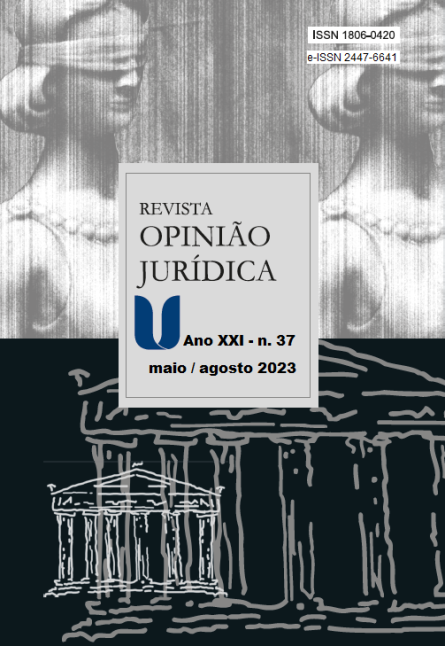NATIONAL CURRICULUM GUIDELINES FOR LAW COURSES: THE INSERTION OF CONSENSUS CONFLICT RESOLUTION METHODS AND THE CONSTRUCTION OF A DIALOGUE CULTURE
DOI:
https://doi.org/10.12662/2447-6641oj.v21i37.p236-260.2023Keywords:
legal education, law course, national curriculum guidelines, consensual methods of conflict resolution, culture of dialogue, social pacification.Abstract
Objectives: The present work aims to promote a reflection on the inclusion of Consensual Methods of Conflict Resolution in the National Curriculum Guidelines (DCNs) of Undergraduate Law Courses – Resolution CNE/CES nº 5/2018, with the changes introduced by Resolution CNE/ CES nº 2/2021 –, as mandatory content and practice, aiming at building a Culture of Dialogue.
Methodology: The research was documental and bibliographical, qualitative in nature, exploratory in nature, working with deductive reasoning. The question that sought to be answered concerns the degree of insertion of Consensual Methods of Conflict Resolution in the current DCNs of Law Courses and the possible impact that such a measure may have on the construction of the Culture of Dialogue.
Result: It is concluded that, with the implementation of the current DCNs, there is a legal requirement that Law students start to study, with greater theoretical and practical emphasis, the Consensual Methods of Conflict Resolution, giving rise to the modifyng the culture of managing of legal conflicts from a judicial sentence perspective to a consensus perspective.
Contributions: The research showed that the topic is of great academic and professional relevance. And that, from the publication of the new DCNs, the Consensual Methods of Conflict Resolution, which were already characterized as a public policy of the Brazilian state, now become a mandatory part of the training of all future professionals in the field of Law.
Published
How to Cite
Issue
Section
License
CESSION OF COPYRIGHTS
The submission of articles to analysis for publication on Opinião Jurídica implies the author(s) transfers copyrights to Centro Universitário Christus – UNICHRISTUS for reproduction, publicizing, distribution, printing and publication, according to the Publication Norm 414R, Opin. Jur., Fortaleza, year 12, n. 16, p.1-414, Jan./Dec. 2014, costs to be bore by UNICHRISTUS, in whatever format or means that may or shall exist, in accordance to articles 49 and following of Federal Law 9.610/98.
1. In ceding copyrights, the author(s) agrees to do so in exclusivity, free of charge and for the totality of the work.
2. UNICHRISTUS may make the work, in its entirety or in parts, available for scholarly purposes, without altering its contents, except for small corrections that are deemed necessary.
3. The cession of copyrights is valid in all countries and for versions of the material in its original language or translated into a foreign language.
RESPONSIBILITY FOR THE CONTENT
By submitting an article, the author(s) declare to have sole responsibility for the content of the piece and is(are), therefore, responsible for any judicial or extrajudicial measures referring to it.
1. In case of joint authorship, all authors are considered collectively responsible, except when proved otherwise.



















